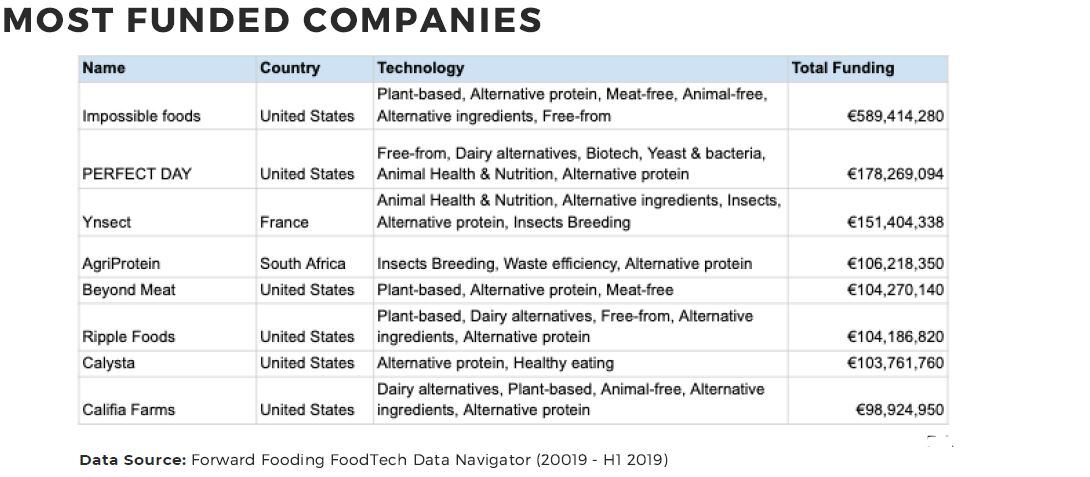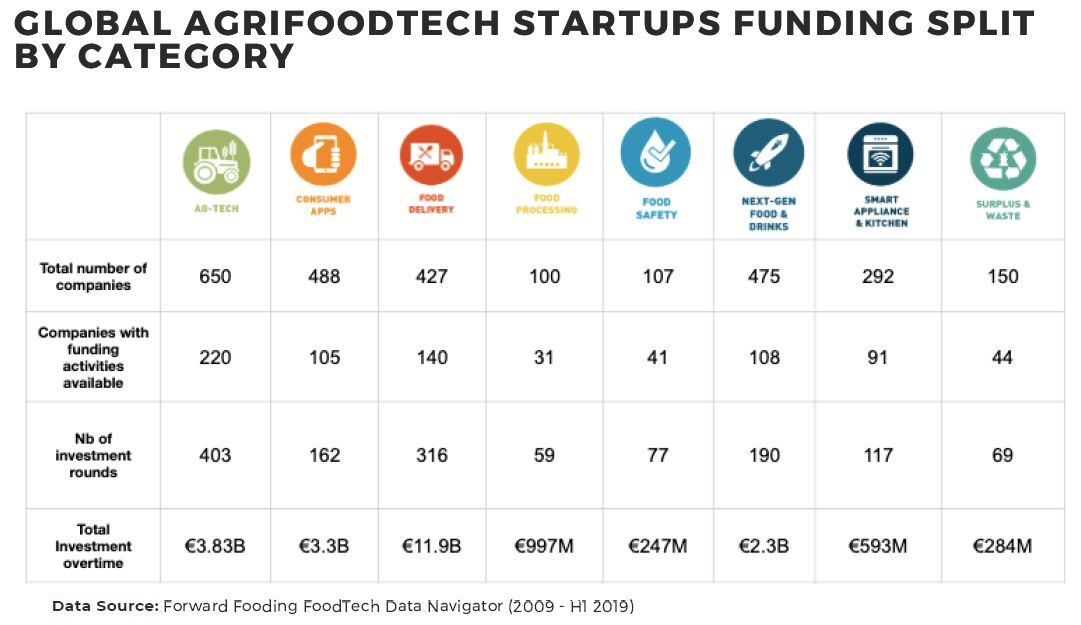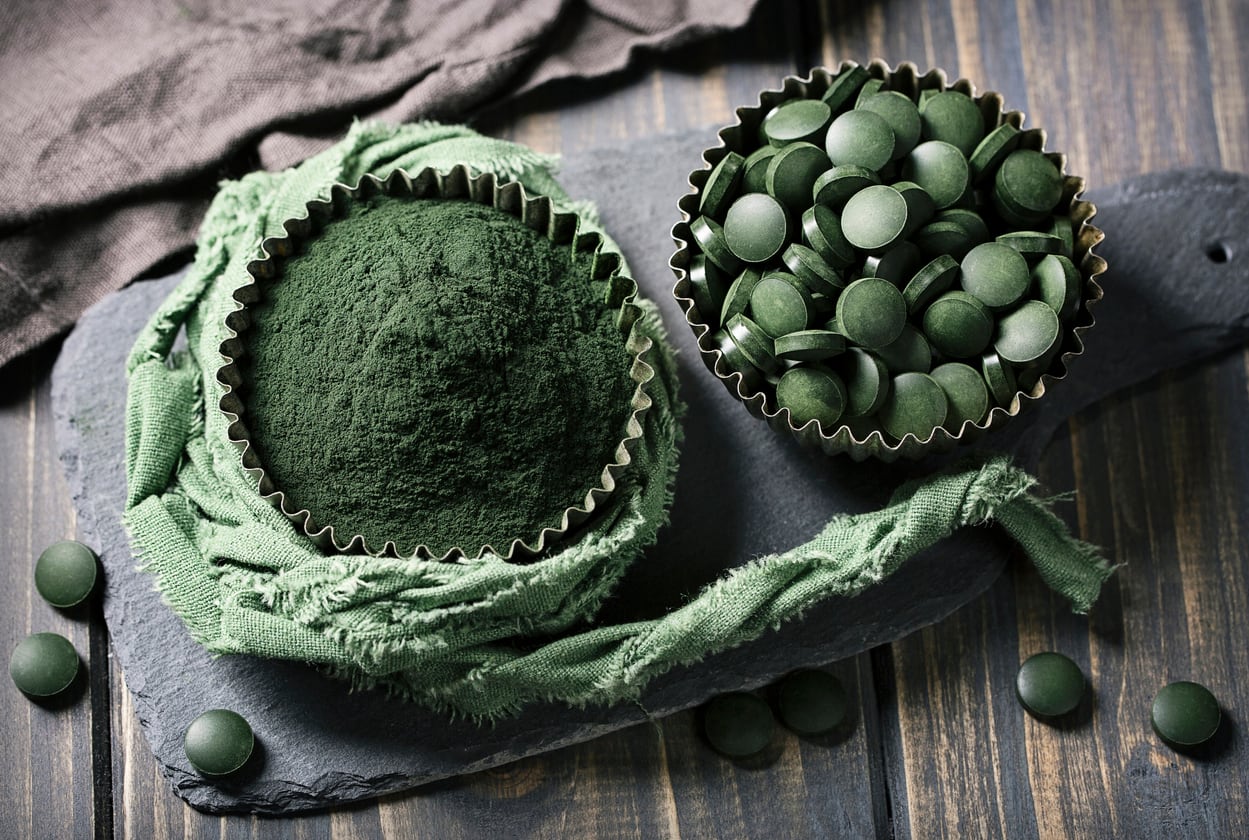Forward Fooding, a global network of food entrepreneurs, highlighted nanoencapsulation (where nano-sized amounts of nutrients such as vitamins, calcium or iron are put into foods in order to be absorbed faster by the body), gut health and probiotics, and alternative functional ingredients such as collagen, CBD and algae, as trends to watch.
“We see no reasons for these trends to slow down at the moment,” it wrote in a report into current food technology trends. “While we expect some of these functional ingredients to get to the masses (kombucha, CBD and algae), some new innovations will undoubtedly also come to market. We also anticipate a renewed focus on taste to match consumer needs, alongside the increase in focus on functional ingredients and their innovative health benefits.”

While CBD remains in a quandary, Forward Fooding expects new technology applications for CBD will be developed as ‘personalised’ food enters this space and will require the extraction of essential oils from different plant breeds according to consumers’ preferences.
Nanoencapsulation technologies, meanwhile, will continue to rise as they can help extend the shelf-life of probiotics and even encapsulate up-cycled ingredients (e.g. antioxidants, polyphenols) that ‘would have been difficult to incorporate in food otherwise’.
The research highlighted smart food firm Huel and Swedish farmed algae producer Simris Alg as among the most funded firms in the functional food and ingredient space in the last decade (receiving nearly €22.5m and €15m in total funding between 2009 and the first half of 2019 respectively).
Overall, the global food tech space has raised €23.6b in the last 10 years, according to the analysis, much of this coming in the wake of the Whole Foods-Amazon merger and Beyond Meat IPO, which Forward Fooding described as the two most significant events to have shaken up the global food tech industry in the past few years. The sector’s funding rose by 278% between 2016 and 2018, it revealed.
The report said we can continue to expect to witness a continued proliferation of new ‘upcycling technologies’ (e.g. air protein, protein synthetisation) which aim to provide alternatives to nowadays-unwanted ingredients (e.g. sugar, palm oil etc) becoming technically and commercially viable.
“We believe more and more big players (e.g. flavour manufactures) will start (or continue) investing in this emerging sector,” it said.
It doesn’t expect significant change in the insect market unless regulation becomes uniformly more favourable across Europe and/or we see ‘major corporates going behind insects for consumers. “We don’t expect to see any significant change in that space yet, but insect protein for pet food and animal feed will keep growing massively.”
‘Uberisation’ of the meal-kit market
Grocery stores will increasingly become more focused around consumer engagement, experience and education, and less and less for pure shopping, predicted the research. “As it will reach maturity, we expect to see an ‘Uberisation’ of the meal-kit market (and the whole food delivery sector) consolidating and being dominated by a small amount of key players who will have absorbed new entrants thanks to consumer data acquisition and ability to scale up their logistics.”
Illustrating the trend of major industry interest in meal kits in recent years are the recent investments of Nestlé in Freshly and Unilever in Sun Basket. Other technology that will come under the big firms’ radars are farm-to-table products boxes and personalised subscription boxes.

Food surplus and bio-materials will continue to disrupt
Companies using food surplus and turning it into products are on the rise and expanding rapidly, observed the report. The climate crisis is helping the likes of Toast, which brews beer with surplus fresh bread, Snact, which makes snack bars from leftover fruit and Rubies in the Rubble, which makes condiments from surplus ingredients that would otherwise go to waste, to have a ‘great brand narrative’.
Bio-materials packaging is also going ‘mainstream’ among start-up products, with large manufacturers (such as Nestle’s new brand Yes!) making the switch.
The report noted: “Upcycled and rescued ingredients are becoming trendy as the food waste issue is under the spotlight (eg. Regrained received investments from Barilla, ToastAle has expanded in the US), Mondelēz is testing two snack products through their brand incubator Snack Future: Dirt Kitchen & CaPao.”
Tech solutions (primarily leveraging computational vision imaging and AI), it maintains, are increasingly on hand to help different players in the value chain (eg. retailers) to better manage stock levels and cut down on their food waste. Wasteless is an example of the schemes on offer helping food retailers and suppliers recapture the full value of their perishable products and reduce food waste through AI-powered dynamic pricing.
The plant-based sector will fully enter the packaging space (eg. paper bottles, predicted the entrepreneur network. It said plastic and glass packaging will slowly but surely phase out until only fully-recycling packaging will be in use.
Expect even more awareness about the food waste issue among consumers, it added. Related trends to watch here, the report stated, include biodegradable and edible packaging; food sharing apps; products made of food surplus; upcycling waste for by-products; and smart solutions for retail and foodservice.



